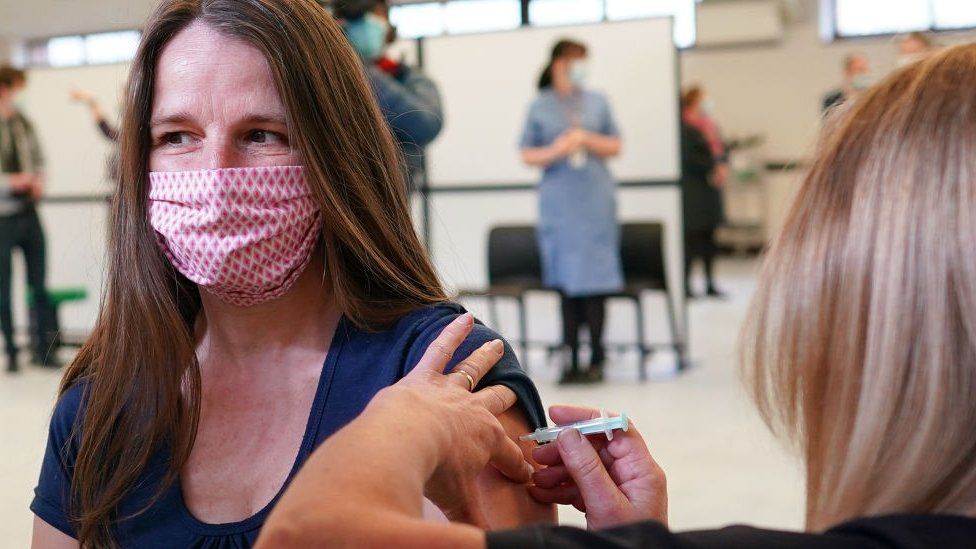Long Covid: What is it and what are the symptoms?
Posted on September 2nd, 2021
By Rachel Schraer Health reporter Courtesy BBC
Most people who catch Covid-19 won’t become severely ill and get better relatively quickly.
But significant numbers have had long-term problems after recovering from the original infection – even if they weren’t very ill in the first place.
However, new research suggests fewer children are experiencing “long Covid” than previously feared.
What are long Covid symptoms?
Guidance for UK health workers describes long Covid as symptoms continuing for more than 12 weeks after an infection – severe or mild – which can’t be explained by another cause.
According to the NHS, symptoms include:
- extreme tiredness
- shortness of breath, heart palpitations, chest pain or tightness
- problems with memory and concentration (“brain fog”)
- changes to taste and smell
- joint pain
Surveys have identified tens and even hundreds of other complaints. A large study by University College London (UCL), identified 200 symptoms affecting 10 organ systems in people with long Covid, at higher levels than in those who had fully recovered.
These include hallucinations, insomnia, hearing and vision changes, short-term memory loss and speech and language issues. Others have reported gastro-intestinal and bladder problems, changes to periods and skin conditions.
The severity of symptoms varies, but many have been left unable to perform tasks like showering, grocery shopping and remembering words.
What causes long Covid?
We don’t yet know for sure.
One possibility is the infection makes some people’s immune systems go into overdrive, attacking not just the virus but their own tissues. That can happen in people who have very strong immune responses.
The virus itself getting into and damaging our cells might explain some symptoms like brain fog and a loss of smell and taste, while damage to blood vessels in particular could lead to heart, lung and brain problems.
Another theory is that fragments of the virus could remain in the body, possibly lying dormant and then becoming reactivated.
This happens with some other viruses, like herpes and the Epstein Barr virus which causes glandular fever.
However, there isn’t much evidence for this happening with Covid at the moment.
It’s likely there are several different things going on in different people, to cause such a wide range of problems.
Who gets long Covid and how common is it?
This is really difficult to pin down at the moment, because doctors only recently started recording long Covid as an official diagnosis.
However, there is a substantial body of research suggesting the condition becomes increasingly likely with age, and is twice as common among women.
Some, but not all, long Covid symptoms are more common in people who were very ill or ended up in hospital.
Analysis of several studies and health record databases by King’s College London suggested 1-2% of people in their 20s who had the virus would develop long Covid, compared with 5% of people in their 60s.
“But 1-2% of 100,000 cases a day is a lot of people,” points out Dr Claire Steves, one of the study’s authors.
Dr David Strain at the University of Exeter Medical School, who works with patients with long Covid, said most people being referred to his clinic were in their 20s, 30s and 40s.
That might be because these symptoms, though slightly less common in younger people, have a bigger impact on them.
It may also be because older people were vaccinated first, so are are more likely to be fully protected.
Senior author on the UCL paper Dr Athena Akrami said: “We’re going to deal with a big wave of seemingly mild infections where maybe one in seven is going to develop long Covid, and that will be among young people”.
What about children?
Children are less likely than adults to catch Covid and so by definition less likely to develop long Covid – but some still do.
However, leading experts say they are reassured about scale of long Covid in young people after the biggest study in the world showed persistent symptoms were less common than feared.
Some early estimates had suggested as many as half of all children who caught coronavirus would develop long Covid.

But a team of researchers, led by the Great Ormond Street Institute of Child Health, investigated more than 200,000 positive cases among 11 to 17-year-olds between September and March.
They think that between 4,000 and 32,000 of those were still experiencing symptoms 15 weeks later.
We don’t have know how debilitating the symptoms were, but there was little evidence that children were left bedridden or unable to go to school.
The study team will keep keep tracking the children’s symptoms in the coming months.
But the researchers stressed the risk to young people is “not trivial”, and said it’s vital that children who are still experiencing headaches, tiredness and breathing difficulties get the medical support they needed.
How will I know I have long Covid?
There is currently no test – instead it is currently a “diagnosis of exclusion”, according to Dr Strain, with doctors first ruling out other possible causes.
They test for other issues like diabetes, thyroid function and iron deficiency, before offering a diagnosis.
A blood test for long Covid could become available in the future. And in research settings more sophisticated tools are already being used to identify organ damage – but you won’t be able to get these at a standard GP appointment.
Can the vaccine help?
Roughly half of people with long Covid reported an improvement in their symptoms after being jabbed – possibly by resetting their immune response or helping the body attack any remaining fragments of the virus, say experts.
Vaccination can also help prevent people contracting the virus and developing long Covid in the first place.

What treatments are available?
In England, 89 specialist long Covid assessment centres have been set up.
Similar clinics are expected to open in Northern Ireland in the coming months, while in Scotland and Wales patients will be referred to different services by their GPs, depending on their symptoms.
At the moment there are no proven drug treatments and the main focus is on managing symptoms and gradually increasing activity.
A formal clinical trial into drug treatments is expected to launch soon.